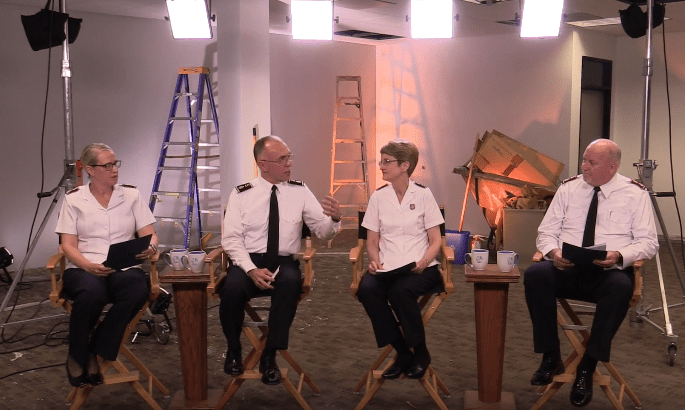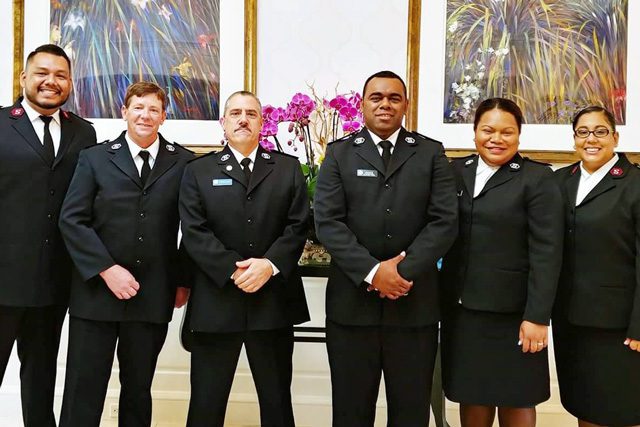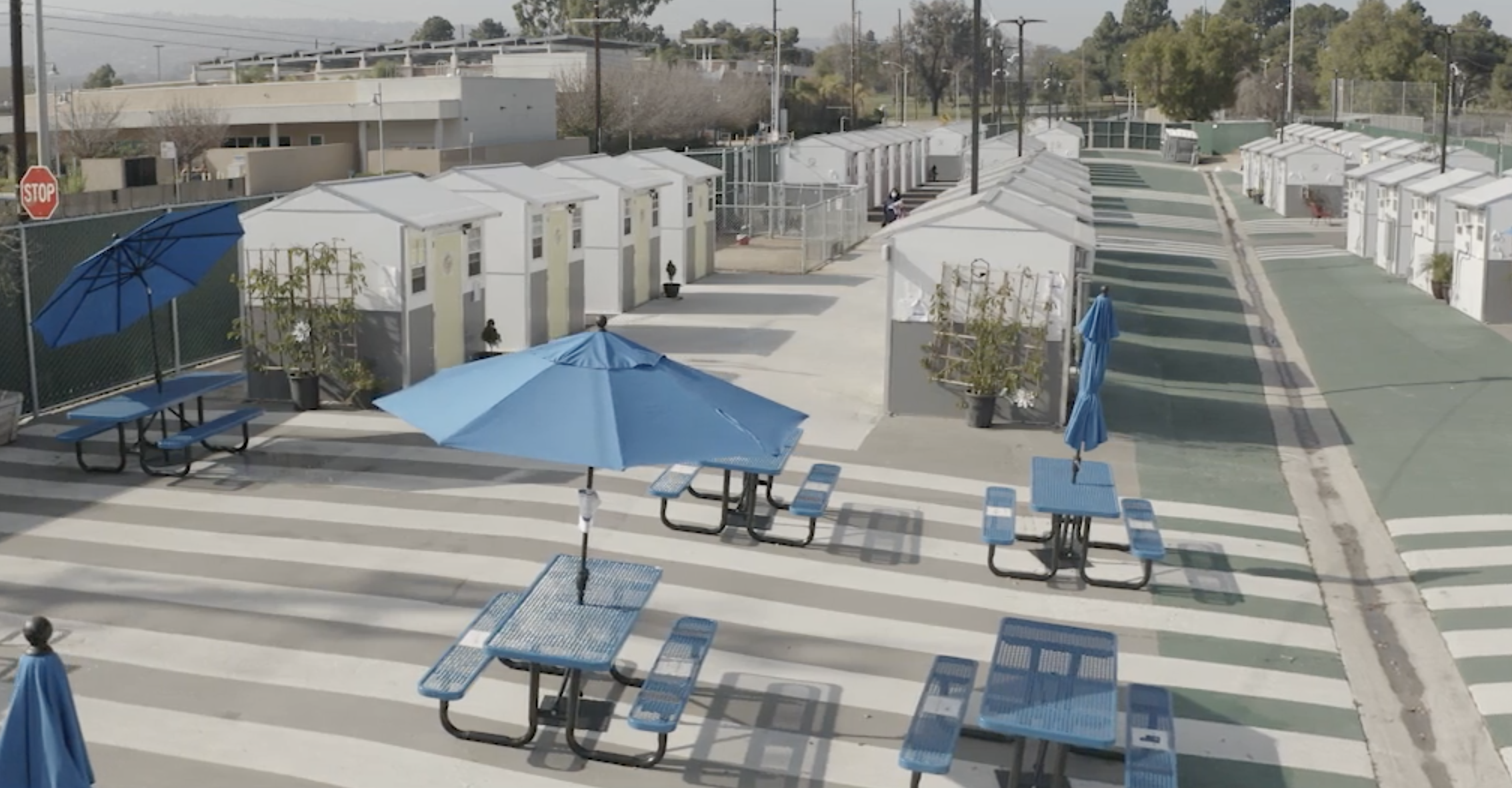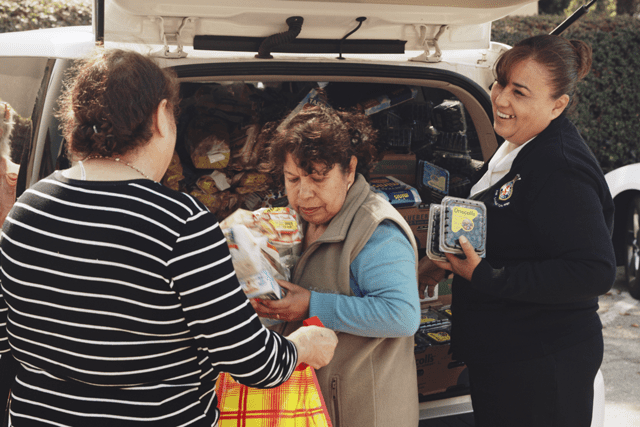In the remote village of Hoonah, Alaska, The Salvation Army has created a unique approach to raising money: by selling doughnuts.
From May to September, cruise ships of all sizes stop at the port in Hoonah, and the hungry tourists coming off the ship discover The Salvation Army’s small doughnut shack, where they purchase the delicious and fresh mini-doughnuts in droves.
The local corps officers (church pastors), Majors Kevin and Tina Bottjen, then direct those funds right back into the local community, using it to provide food, shelter, and other services during the long winter off-season.
Read the transcript of the video here:
Major Kevin Bottjen: Hoonah is on an island. And as an island, there’s two ways to get here: fly, or float. It’s a beautiful place to live. We see whales in our front yard, deer and bear in our backyard. Population of 750 to 800 people, year round. Subsistence is a lifestyle here, we live off the land as much as possible.
We are actually in deer hunting season. So, that’s what a lot of us live off of throughout the year. Then there’s fishing, we’ve got salmon, halibut, crab, shrimp, sea asparagus and seaweed. But there’s still things you’ve got to buy. There’s still dried goods you got to bring in. So you’ve got to have money to buy that.
Icy Strait Point is a stop for the cruise ships. It’s owned basically by the people of Hoonah, and they’ve done a very good job. So, basically we are a tourism-based society. So we have from May 1 to September 30, that’s when they make their money. When we first moved here, we went down to Icy Strait Point, and there was an empty hut. And I looked through the window and I saw all this doughnut equipment, and I always thought it’d be kind of neat to do something like that.
Baking has been a big thing for me. I love the science behind it. I love the magic behind it. And doughnuts were synonymous with the Doughnut Girls and The Salvation Army in World War I. So we bought it. And, well, I had to learn how to make doughnuts. Then I just started experimenting. Some of the flavors instantly were hits. Some of them were accidents. Our Sriracha started as a prank. One of the guys wanted to prank his boss with a hot spicy doughnut, so I took the challenge on. It ended up being a very good flavor.
Alright, so this machine can do up to 1200 mini-doughnuts an hour. The batter goes in here, makes a river of hot oil, so you can speed the flippers up to make sure that these got cooked all the way on both sides. Over here is our steam table, which we use to keep them fresh and warm.
Customer 1: They fry them literally right in front of you, they’re coming out as you’re waiting in line.
Customer 2: Very warm, soft to the palate.
Customer 3: Thanks!
Major Kevin Bottjen: About once a week I have to make new flavors. Cinnamon Sugar, Powdered Sugar, Chocolate Maple, Blueberry, Apple Cider, Butterscotch, and Raspberry, Birthday Cake, Huckleberry, Pumpkin Spice; my favorite is Pistachio. And of course, we got Maple Bacon.
Customer 4: Oh, my gosh. These mini doughnuts are fabulous. They just came out of the cooker, they’re warm and yummy. And we came all the way from Atlanta, Georgia, just to have one.
Major Tina Bottjen: A lot of people ask why the doughnut shop, why The Salvation Army is here doing this, and I’m able to share with them a lot of the things that we do here in Hoonah to help our community.
Major Kevin Bottjen: There are times that winter gets pretty extreme.
Major Tina Bottjen: It’s just colder. The utilities go up more, due to the fact you’re using more electricity to help heat your home. So the money that they’ve earned through the summer months starts running out. So, we help with utilities.
Major Kevin Bottjen: Money starts drying up for many families around February. And then that’s when, because of the funds raised through the doughnut hut, we can help with food boxes, we can help with rental assistance.
Major Tina Bottjen: We have our food box program. It’s usually about 3-5 days worth of food, and we go and deliver it to them because most people in the community don’t have vehicles, so we go to them. One of my favorite things down at the doughnut shop is how many people from the community come and ask us for prayer sometimes. That’s one of my greatest rewards.
Major Kevin Bottjen: The doughnut hut helps make what we do here realistic. The monies raised are incredible. Our saying on the sign, it says, “Help feed your hunger, while feeding the hungry.” And that’s really what we are doing out there at the doughnut shop.
For information on the unique ways The Salvation Army serves your local community go to salvationarmyusa.org.
Do Good:
- See more videos like this in our video feed.
- Are you a Do Gooder, someone who cares about bringing goodness into the life of your family and community? Subscribe to The Do Gooders Podcast to be inspired by those doing good and find tangible tips for simple actions you can take today.
- Did you know The Salvation Army served more than 23 million Americans last year fighting hunger, homelessness, substance abuse and more—all in a fight for good? Where can you help? Take our quiz to find your cause and learn how you can join in today.

















